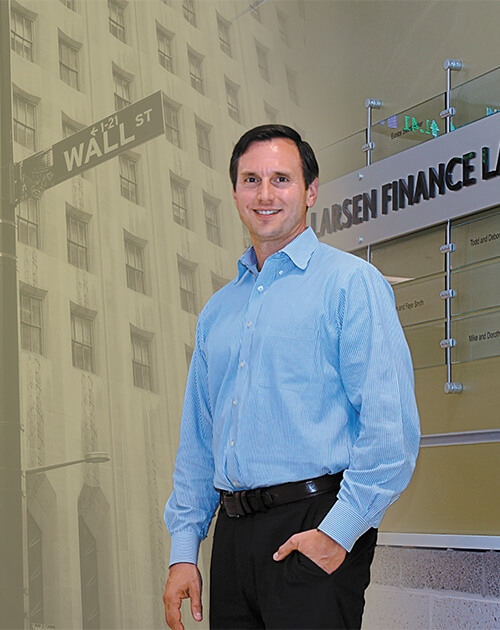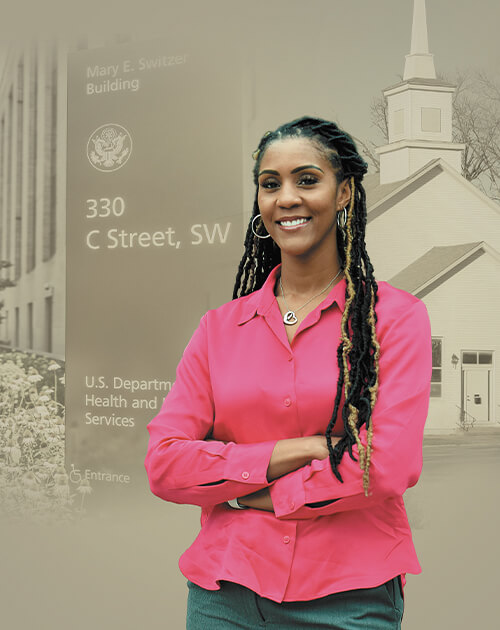How Messiah professors bring real-world expertise to academia and our students

Imagine working on Wall Street and feeling very, very lonely. The money is good, sure. But, where are all the Christians?
Don’t worry. Associate Professor of Finance Dwayne Safer has a plan.
“I look at the world as a mission field. When I was working on Wall Street, that’s an environment where I was often the only believer at my firm. My goal in coming to Messiah was, how do I get more Christian men and women into this mission field called Wall Street? The impact that will have is going to be profound,” said Safer.
Messiah professors who have left the corporate world for academia bring vast real-world experience to their teaching. They enrich our students’ educational experience in a way that textbooks and term papers cannot. They also embody how to live out one’s faith in the workplace.
Sharpening intellect
After working in investment banking for many years, Safer continually thought of an influential finance professor he’d had as a student at Taylor University, a Council for Christian Colleges and Universities (CCCU) school like Messiah.
“He was gregarious and loved the Lord. The example he set for me was extremely influential. He passed away suddenly my senior year,” said Safer. “I saw the influence and the impact he had. I thought if someday I could have 1/10 of 1 percent of the impact that he had on students, I would be fortunate.”
Living in northern New Jersey, married with three children, he says everything was going great with his career. But, through devotion and meditation, he wanted something more. He searched for a finance job on the CCCU website–for a couple of years–until he found the job at Messiah.
“I was encouraged that they were willing to give me an opportunity to create and build a finance major,” he said.
He notes that Messiah is only 1 of 4 Christian institutions that offers concentrations in both financial analysis and financial planning, that are accredited by the CFA and CFP boards, respectively.
“Penn State doesn’t have that,” he said. “I want to demonstrate to students that by coming here, they will accelerate their career path. I don’t want them to feel like they’re sacrificing any bit of their academic or career trajectory by coming to Messiah.”
He says the most eye-opening part of being a professor is the willingness of students to get to know him as a person.
“I will clear my schedule any day, any time for students. It’s what I left my entire career for,” he said. “We have high-character students who have the intellect and the drive and the willingness to put in the time to be excellent in their field.”
Echoing a similar path from the high-pressure corporate world to the academic world, Associate Professor of Accounting Kathleen Johnston worked as a tax accountant at KPMG–a Big Four accounting firm–and as a tax liaison for the Hershey Company.
She then reevaluated her career when she had triplets. Deciding against putting three infants in daycare at the time, she decided to leave Hershey and began her own certified public accounting firm. Over the years, she also taught as an adjunct at Harrisburg Area Community College (HACC).
Years later, with three tuition bills on the horizon, she deftly adjusted her career again.
The timing was just right, since Messiah was looking for a practicing CPA to teach accounting and tax classes.
“I seemed like a perfect fit,” she said. “I truly felt it was God’s calling.”
She balances both worlds—teaching more classes in the fall to accommodate tax season in the spring. In her work, she’s showing what it’s like to have a career in the field she’s teaching.
“I enjoy bringing my tax clients’ stories into my class lectures. So many of our business faculty bring their real-world experience into the classroom. It enriches the class. When you bring these situations into the classroom, students see what’s going on in the business world. It’s so much more than making things up or using the textbook,” she said.
Deepening Christian faith

After 15 years of working for the state and federal government, including the Department of Health and Human Services during a global pandemic, Erin Willford-Skipworth left to work on her Ph.D., focus on preaching ministry and align her work with her calling to teach faith-based leadership.
“I got to a point during COVID where I was overwhelmed,” she said. “I’d been an adjunct before, so I thought I’d work on my Ph.D. and adjunct a bit,” she said.
Working as a pastor of congregational care at Bethlehem Baptist Church in York, Pennsylvania, she focused on ministry and teaching while pursuing her Ph.D. in church and ministry leadership at Lancaster Bible College’s Capital Seminary and Graduate School. Working on her dissertation, she began in August as the associate professor of business and leadership at Messiah, which puts her in a unique position to foster ethical business leadership in the graduate program in business.
“Our faith should transform how we view and practice every discipline, including business. For profit and non-profit organizational leaders, faith should guide how we profit and provide purpose for how we use those profits,” she said. “I am so glad to be a part of a community that views faith as the transformational and purposeful tool to be integrated through every aspect of the Messiah business and leadership programs.”
Messiah also represents a full-circle moment for her family. Her father, the Rev. Dr. Aaron Willford Jr., attended Messiah for a couple years before pursuing his graduate degrees at Philadelphia Bible College. Many years later, he returned to campus.
“[Vice President for Diversity Affairs] Todd Allen reached out to him and got him to talk in chapel in 2019,” she said. “My dad was so happy.”
Through that positive interaction, her father suggested that she teach at Messiah. “He said, ‘If you’re thinking about teaching, I suggest you look at Messiah. It has changed a lot since I was there,’” she said.
Then a position opened up.
“Once I saw the position posted, it was perfect timing, perfect fit,” she said. “As an African-American woman coming to Messiah, the warmth, the hospitality, even in my first semester, I feel I belong and have a sense of ownership in adding to the culture, which is very unique. I get to focus on what I’m called to do. The mission for reconciliation that Messiah has implemented into the culture is an honest representation of who Messiah wants to be and who they are. It’s a great place for students to come learn. We hold just as strongly to our faith as our academics. My work and faith are the perfect combination,” she said.
Inspiring action
Ryan Farris, assistant professor of biomedical engineering, applies engineering principles to address health-related challenges. He is named on more than 20 patents associated with design and control methodologies for medical robotic devices.
As a mechanical engineering Ph.D. student at Vanderbilt University, he worked as a graduate research engineer in orthotics. Then the Parker Hannifin Corporation, a global leader in motion and control technology, reached out to the university about partnering on some medical robotics. Soon, Farris was working for them as a technology lead of their newly formed human motion control business.
“It was an engineer’s dream job, the opportunity to build a medical device business,” he said. “I supervised a high-performing team of scientists but also a small enough endeavor to participate in design. You help someone in a wheelchair stand up and give their loved one a hug. You can’t put a price tag on that.”
Why would someone leave all of that for a classroom? Academic and religious freedom.
“In a secular workplace, I found few opportunities to share my faith or even talk about spiritual matters. At Messiah, I am not only allowed but encouraged to bring my faith to work. As an engineer, I need to know that logic and science support what I believe, and this this is all real, historically factual, and something worth betting my whole life on. I get the privilege of thinking through these things with students. Students need to see that not all scientists are atheists,” he said.
To teach his students the lessons he has learned in the medical device industry, he started Messiah Medco, a simulated med tech company with standard operating procedures and employees (aka students).
“On the first day of ENGR 432 (Design of Medical Devices), I welcome students to Messiah Medco and inform them that they will be forming teams to develop the next line of Class II medical products at Messiah Medco, under formal FDA design controls,” he said. “By the end of the semester, teams have performed market research, intellectual property analysis, concept generation, risk assessment, engineering design, fabrication, and verification and validation activities.
This work results in a functional prototype and an FDA-compliant design history file that could be used to support FDA approval of the product.
At Messiah, he also works on projects in the Collaboratory that he couldn’t work on in industry because they wouldn’t be considered lucrative from a business standpoint despite their potential impact for good in the world.
“The Collaboratory is a magical place where engineering students, professors, external engineers and clinical professionals work together to address worthy causes with technology. For students, there could be no more valuable way to gain real engineering experience before graduation. For me, it has become an opportunity for continuing research while offering students the opportunity to engage in ways that often become available only to graduate students at other universities,” he said.
Through these amazing professors, students have the opportunity to learn from corporate experts living out their faith. It’s a win-win for all involved.
–Anna Seip